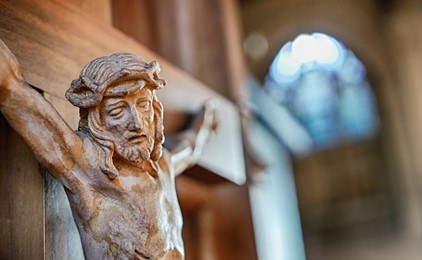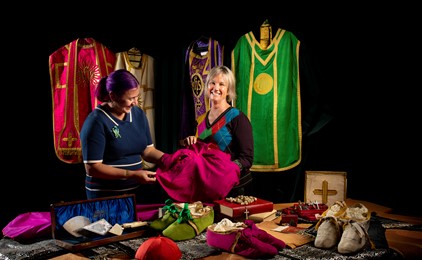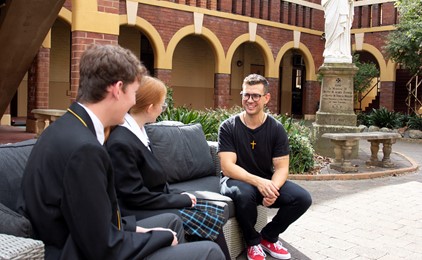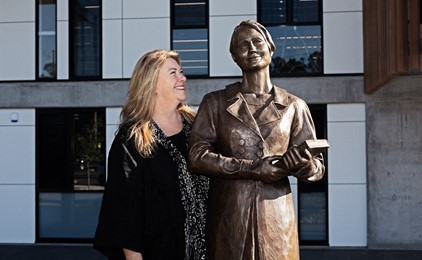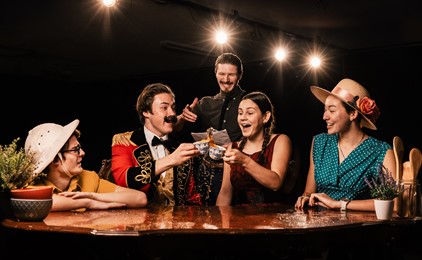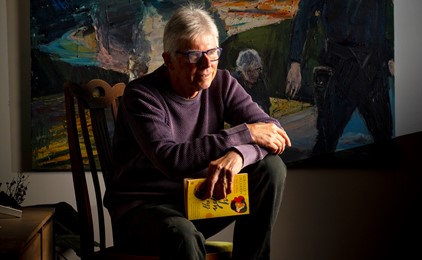Heal thyself with right-brain yarns
Expressive art therapy integrates all of the arts in a safe, non-judgmental setting to facilitate personal growth and healing. To use the arts expressively means going into our inner realms to discover feelings and to express them through visual art, movement, sound, writing or drama. This process fosters release, self-understanding, insight and awakens creativity and transpersonal states of consciousness. (Natalie Rogers, PhD, REAT)
Jesus wasn't white
I grew up in a Christian home where a picture of Jesus hung on my bedroom
wall. I still have it. It is schmaltzy and rather tacky in that 1970s kind of way, but as a little girl I loved it. In this picture, Jesus looks kind and gentle; he gazes down at me lovingly. He is also light-haired, blue eyed, and very white.
There is a problem here. Jesus was not white. You’d be forgiven for thinking otherwise if you’ve ever entered a Western church or visited an art gallery. But while there is no physical description of him in the Bible, there is also no doubt that the historical Jesus, the man the Roman state executed in the first century CE, was a brown-skinned, Middle-Eastern Jew.
This is not controversial from a scholarly point of view, but somehow it is a forgotten detail for many of the millions of Christians in today’s word. In Australia, Christians who attend church will mostly encounter Jesus depicted as a white man who looks like Anglo-Australians. This image is easily identifiable for other Anglo-Australians.
This is the case in mainstream media too. Think for a moment of the rather dashing Jim Caviezel who played Jesus in Mel Gibson’s The Passion of the Christ. He is an American actor. Or call to mind some of the most famous artworks of Jesus’ crucifixion – Rubens, Grunewald, Giotto – and again we see the European bias in depicting a white-skinned Jesus.
Does any of this matter, you might ask. Yes, it really does. As a society we are well aware of the power of representation and the importance of diverse role models.
After winning an Oscar in 2014 for Best Supporting Actress for her role in 12 Years a Slave, Kenyan actress Lupita Nyong’o shot to fame. In interviews since then, Nyong’o has repeatedly articulated her feelings of inferiority as a young woman because all the images of beauty she saw around her were of lighter-skinned women. It was only when she saw the fashion world embracing Sudanese model Alek Wek that she realised black could be beautiful too.
If we can recognise the importance of ethnically and physically diverse role models in our media, why can’t we do the same for faith? Why do we continue to allow images of a whitened Jesus to dominate?
Of course, many churches and cultures do depict Jesus as a brown or black man. Orthodox Christians usually have a very different iconography to that of European art, and if you enter a church in Africa, you’ll most likely see an African Jesus on display. But these are rarely the images we see in Australian Protestant and Catholic churches, and it is our loss.
It allows the mainstream Christian community to separate their devotion to Jesus from compassionate regard for those who look different. It creates a cognitive disconnect where one can feel deep affection for Jesus but little empathy for a Middle-Eastern person. Historically, the whitewashing of Jesus contributed to Christians being some of the worst perpetrators of anti-Semitism and it continues to manifest in the “othering” of non-Anglo Saxon Australians.
As we consider a world where the Covid pandemic is ravaging countries such as India and Brazil, I can’t help but wonder what our response might be if we just remembered that Jesus was brown skinned too?
How might our attitude towards refugees change if we recalled that the body that hung on the cross was a brown body: one that an oppressive regime, tortured, broke, and publicly executed. Perhaps we might recognise that the unjust imprisonment, abuse, and execution of the historical Jesus has more in common with the experience of Aboriginal and Torres Strait Islanders, or refugees fleeing terrorism, than it does with those who hold power in the Church and usually represent Christ.
What might change if we were mindful that the person Christians celebrate as God in the flesh and Saviour of the world was never a white man, but a brown-skinned, Middle-Eastern Jew?
Robyn J. Whitaker is a Senior Lecturer in New Testament, Pilgrim Theological
College, University of Divinity. Parkville, Victoria.
This was originally published on The Conversation on 29 March 2018, and updated in May this year.
Marking time
The Archibald portraits, embroidered silk vestments, glass rosary beads, and wooden cabinets filled with leatherbound editions that line the hallways of Cathedral House are as beautiful as they are important markers of time.
People hear when the heart sings
At first look, you might not think there is much in common between Maltese-born Father Rob Galea and the 1,200 students at All Saints’ College, Maitland.
Singing in harmony for diversity
On first listen, The Quokkas might sound like your typical children’s band. The songs are fun and catchy, the visuals are vibrant and colourful, and if you have children there is a 100 per cent chance the music will get them, and you, moving and grooving.
Present in the moment
Not many people can walk around towns spotted across Australia and see their artwork permanently on display.
Performing resilience
Saint Mary MacKillop said “never see a need without doing something about it”.
Staged progression
A school administration mishap in 2001 has been the making of one of the state's leading drama teachers.
For those who came in late...
Dietmar Lederwasch is a humble man, passionate about art and forming meaningful connections with others.

